LATEST NEWS
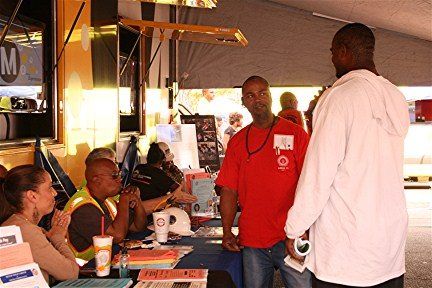

The annual Taste of Soul Festival is renowned for its culinary offerings and cultural richness. This year’s festival, however, had something else on the menu: real hope for job seekers.
The promise of employment comes from the groundbreaking Construction Careers policy passed by the Metropolitan Transit Authority (MTA). Metro became the first transit agency in the country to ensure that projects are completed using skilled workers and creating training opportunities for economically disadvantaged residents. Since then, the Construction Careers coalition – an alliance of worksource centers, youth-engagement and veterans groups, and community groups – has embarked on an ambitious effort to reach out to as many communities as possible about opportunities in the construction industry, in advance of groundbreaking on major projects that will be covered by the policy, including the Crenshaw/LAX line, the Westside Subway Extension and the Regional Connector. This sort of outreach is crucial as South L.A. is one of the communities hardest hit by unemployment.
» Read more about: A Taste of Soul With a Side of Construction Careers »


Three decades ago, women in South Los Angeles stood up against the City of Los Angeles to block the siting of the city’s solid waste incinerator known as the Los Angeles City Energy Recovery (LANCER) project. Organized as the Concerned Citizens of South Central Los Angeles, women successfully fought back against powerful industry and business interests and complicit local decision makers, to block an additional polluting facility from being sited in a neighborhood already bearing the burden of toxic waste and abandoned factories.
While communities across the U.S. began organizing around environmental justice, powerful waste industry interests continued their expansion, while avoiding increased opposition to incineration plants and waste plants in general. The California Waste Management Board retained Los Angeles-based lobbying firm Cerrell Associates to produce a memo outlining which communities were least likely to oppose waste incinerators. The memo, titled “Political Difficulties Facing Waste-to-Energy Conversion Plant Siting.” (aka the “Cerrell Memo”) presented a demographic analysis identifying low-income communities of color,
» Read more about: L.A.'s Environmental Justice and Waste History Lesson »
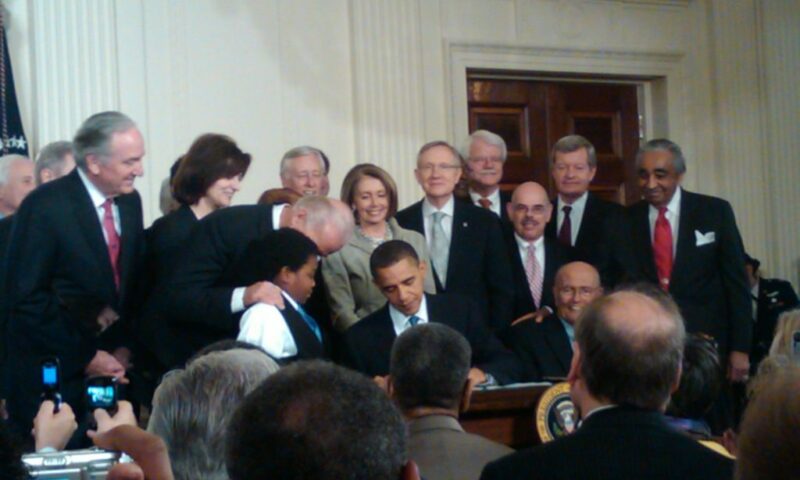
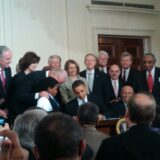
Four years ago, my wife and I planted an oak tree on Election Day – our Obama Oak – at the front of our house. The remarkable thing about the tree is how long it holds on to its leaves. I see it from my window, now doubled in height, still holding its crimson leaves, even after Sandy’s winds blew the leaves off of every other tree in the surrounding Taconic Hills. For me, the Obama Oak’s hardiness is a testament to perseverance of a health reform movement and a president, who together completed the 100-year quest to make health care a government-guaranteed right in the United States. With the president’s reelection, that quest is now secure and a new era in American health care begins.
I am sure that skeptics on the left will scoff at the assertion that the ACA launches a new era in health care. After all, a key to securing congressional passage of the Affordable Care Act was that the law did not upend the current system of health care financing in the United States.

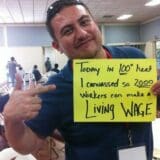
Long Beach hotel workers and community activists made history Tuesday, passing a living wage ballot measure that will help lift 2,000 people in that city’s tourism industry out of poverty.
Long Beach was one of three cities nationwide that passed minimum wage measures (San Jose and Albuquerque were the others), and the only one that enacted a law with paid sick leave. Workers at Long Beach’s large hotels will now earn at least $13 per hour and will have five paid sick days a year.
The passage of Measure N is the culmination of a multi-year effort by LAANE, UNITE HERE! (the union representing tourism industry workers) and the Long Beach Coalition for Good Jobs and a Healthy Community to build grassroots power in Long Beach, a city that for decades has been dominated by business interests largely disinterested in the huge numbers of working poor. Beginning with a large-scale civic engagement project,
» Read more about: Election 2012: Huge Election Win for Long Beach Hotel Workers »


For me, especially once Mitt Romney named Paul Ryan as his running mate, the presidential race became a contest between two Americas: one traditional, Christian, white and wealthy; the other was, well, the Other — a pioneering America of varied ethnicities, incomes and spiritual traditions. The Rainbow Coalition that Jesse Jackson first named a generation ago has come to fruition and it’s a bright day for America. Obama garnered 70 percent of the Latino vote, 70 percent of the Asian vote, 93 of the black vote, 73 percent of the gay vote and close to 60 percent of the female vote. We once again proved that this country is always changing, and that change is our strength.
Obama’s victory is thus history’s victory, the people’s victory, and a victory for all those who believe we succeed best and most when we work together across the so-called “lines” that tradition and history have often put between people.
» Read more about: Election 2012: Diversity Takes Center Stage »
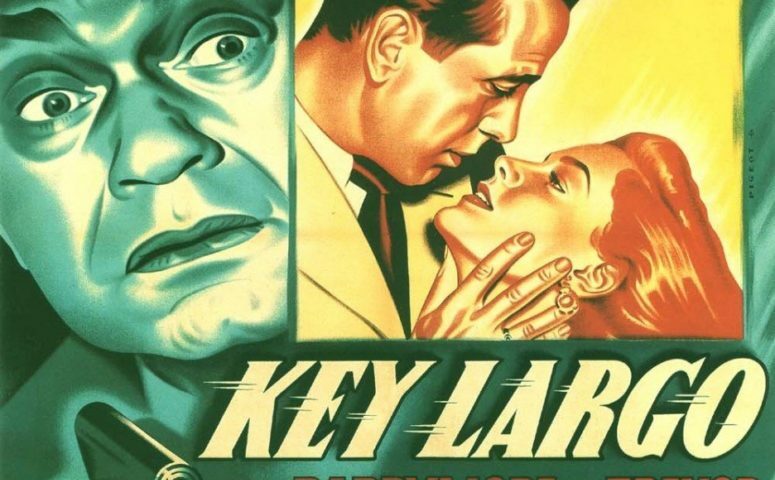
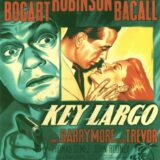
When asked by prospective employers to describe my life’s work, I generally say that I have toiled as a writer on the extreme fringes of the entertainment industry, and most of that in New York. I’m far more familiar with the fantasies peddled by the world of movies and the theater than the one that was being sold this year to Californians by a consortium of billionaires, religious cranks, hedge-fund managers and libertarian extremists bent on financially kneecapping California labor out of the state’s political picture.
Yet when Frying Pan News offered me an election-season gig as a Prop. 32 research assistant to investigative reporter Matthew Fleischer, I didn’t hesitate. I mean, I was no less qualified to look into the issue than the average voter.
No sooner did I begin to track down Prop. 32’s backers than they began emerging as a virtual Who’s Who of the same well-heeled special interests that their initiative was promising to weed out: Bizarre,
» Read more about: Election 2012: How I Spent My Autumn Vacation »
Triumph of the Numbers
Signing off last night, Brian Williams on NBC said something about how the presidential election defied the very idea of prognostication. All night the result was characterized as a surprise, which makes sense given how often television analysts before the election described this race as a toss-up, or too close to call.
Last night was the first time I’d watched any television news since Obama’s 2008 win and it was a good reminder why. Tuesday morning I searched for election predictions, and came up with 11 sites that crunched the numbers and made predictions1. All 11 predicted an Obama victory. One of the 11 expected Obama to lose Colorado, and two expected him to lose Virginia, but the rest were up in the air only about Florida (which was genuinely too close to call).
There was, in the run-up, a fair bit of criticism of such predictions,
» Read more about: Election 2012: Sure Things and Safe Bets »
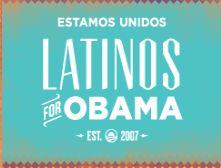
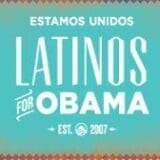
It’s a curious feeling, this brown-becoming, the “Latino vote” hurling itself over the fence as it were, saving Barack Obama from the ignominy of becoming the first black president to lose a reelection bid. I’ve been writing about the potential of the Latino vote going on three decades, and although we’ve had inklings of what kind of power it can wield (such as when it modestly pushed a few swing states toward George Bush in 2004), this time it’s at the center of the electoral narrative.
There was George Will on ABC, minutes after the election was called, talking about how Barack Obama could now put “immigration reform front and center, giving the Republicans a reef upon which they can wreck themselves.” Brian Williams and all the old school network anchors welcomed the “non-Cuban Hispanic” cohort (read: Mexicans, Central Americans, Puerto Ricans) to the national story.
It’s a curious feeling because,
» Read more about: Election 2012: Obama's “Non-Cuban Hispanic” Saviors »


Mitt Romney never had a chance.
Even in the media maelstrom that painted an electorate divided not merely between Democrat and Republican, but between rote decency and full-throated venality — I never believed the story was that simple.
Make no mistake, there was plenty of comic-book villainy, including overt racism and mushrooming fear of the Other (Obama, immigrants, blacks, unions, etc.) that seemed to be overriding any sense of common good. But none of that stuff could really match the bigger mood of the country—battered but cautious, perhaps too entertained by extremism, but not prone to joining it–which is more like Obama the man than any of us knew.
I’ll take that for now. There’s some encouragement in the fact that the center can hold when the margin that’s been fighting to replace it for the last four years is so utterly unappealing, regressive and downright undemocratic.
Nor can money buy everything.


What do weather and women’s bodies have in common?
Both figured dramatically this election season, forcing debate on issues candidates would have preferred to skitter right past. And both had a decisive influence on the vote when it became clear that certain candidates, mired in superstition and ignorance, were using theology to make decisions on matters best left to science. And, as it turned out, weather and women both had ways of shutting that whole thing down.
If Election Day 2012 was a referendum on anything, it was science, and not just the wizard-like math skills of Nate Silver, author of the New York Times’ FiveThirtyEight blog and statistician extraordinaire. It is not incidental that the same people asserting that women’s bodies refuse to fertilize rapist sperm are the same ones denying that carbon emissions from our burning of fossil fuels have caused the climate to warm, as every reputable scientist insists.
» Read more about: Election 2012: Why Science Was Tuesday's Big Winner »


It seems like a hopeless conundrum. We need our government – federal state and local – to stimulate the economy and help create jobs. But our government has no money. Or at least less money. So does that mean that it’s foolish – or unfair – to insist that our local, state and governments do “something” to create more and better jobs for people who desperately need them?
Well, no. In fact, there is a lot that our government can do to double or triple the number of jobs that are being created in the U.S. with the same or similar amounts of money. We just have to do things in a smarter and more strategic way to get much better results.
Here’s what I mean. As people may imagine, local, state and the federal governments buy billions of dollars worth of goods and services every year. Think about all of the buses,
» Read more about: Winning More Jobs from Government Investment »
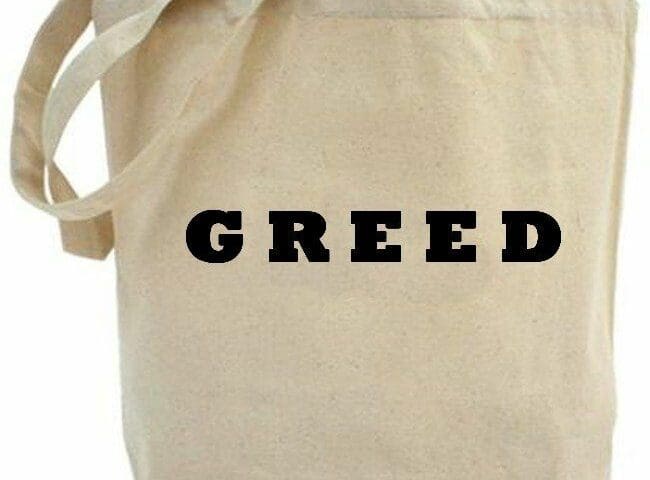

I’m not much of a fashionista. But I do pay attention to which recycled grocery bags I carry. And the one recently passed out to the voters on my block won’t be carrying my TJ’s groceries home. This capacious, green tote is promoting four Santa Monica City Council candidates and is paid for by a coalition of developers calling themselves “Santa Monicans United for a Responsible Future” – SMURF. If only they were those tiny blue trolls of cartoon yore. Instead the group is an association of those LLCs – limited liability companies – that Mitt Romney feels have human powers.
These particular LLCs are involved in numerous large development projects around Santa Monica and are facing a competing political independent expenditure campaign calling itself “Santa Monicans for Responsible Growth” (SMRG), which also is funded, but more modestly, by business interests. These two campaigns combined have raised nearly $450,000,
» Read more about: Money Bags: Shopping for Votes in Santa Monica »
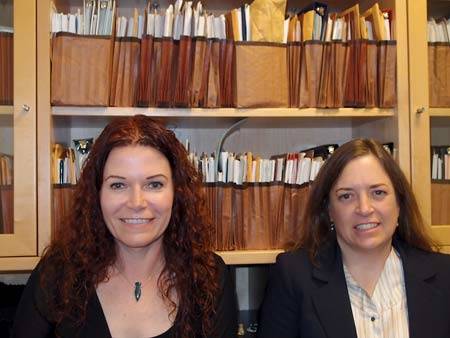

(This Berkeley Blog post is republished with permission and came to us via LA Progressive.)
About a million Americans — 100,000 of them in California — will spend Election Day as poll workers. Karin MacDonald and Bonnie Glaser, director and research specialist, respectively, at Berkeley Law’s Election Administration Research Center, say it’s a role that’s stressful and under-appreciated.
They should know. Since EARC’s inception in 2005, the two researchers have been looking at what it takes to conduct a fair, accurate and transparent election — and sharing EARC’s findings in the form of technical assistance to election officials (many of whom they know many on a first-name basis) and outreach to the public.
The two have delved into various aspects of the election process: poll-worker training, voter registration, early voting, absentee voting, voting by mail, polling-site management and more.
» Read more about: The Secret Lives of California Poll Workers »


It’s official: Americans for Responsible Leadership, the shadowy dark-money outfit that funneled $11 million from Arizona into the campaign supporting California’s Proposition 32 and the effort to defeat Proposition 30, was little more than a courier service for the Koch brothers.
Today’s San Jose Mercury News carried news about the fast-developing story that has gripped Sacramento since October 16:
A group tied to David and Charles Koch, the billionaire brothers who have played a huge role in spreading anonymous political cash around the country, was behind the shadowy Arizona group’s $11 million donation to a California business group.
That group is the Center to Protect Patient Rights, a known front for the Kochs’ political agenda. On October 25, a Frying Pan News post reported by Bill Raden first broke the story that the Kochs were probably responsible for the $11 million October Surprise.
» Read more about: Confirmed: Frying Pan News Story of Massive Koch Brothers Prop. 32 Donation »

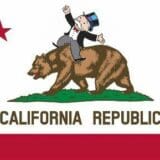
California’s Proposition 32 proposes outlawing the use of automatic payroll deductions from union members and corporations for political purposes. Backed by such labor-hating billionaires as the Koch Brothers, Charles Munger Jr., and by anti-marriage equality crusaders like Howard Ahmanson and Larry T. Smith, the measure will decimate unions’ ability to participate in the political process—stripping them of their considerable clout in the state. But that doesn’t mean Prop. 32 is purely about union-busting. Instead, the measure provides its wealthy backers with a means to an end — to eliminate organized labor as the most significant obstacle to imposing a corporate and fundamentalist religious agenda on an otherwise stalwart progressive state.
Prop. 32 isn’t an end game. It’s the beginning of a much larger conservative agenda for California. The only way to truly understand the potential impact of Prop. 32’s passage is to analyze the agenda of its backers.
Here are the 10 most dire issues California can look forward to if Prop.
» Read more about: 10 Ways Proposition 32 Would Hurt California »
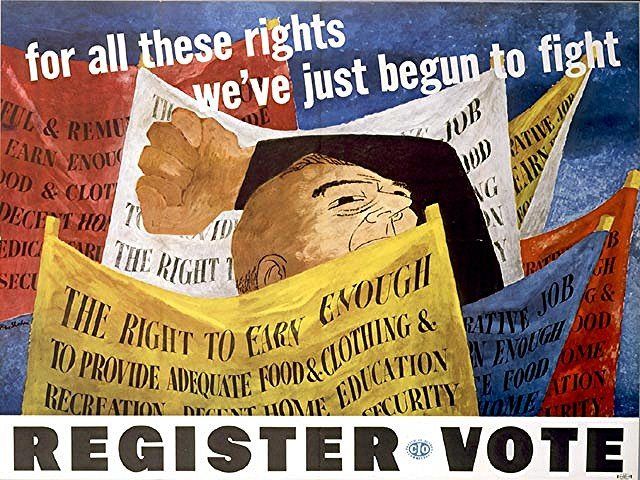
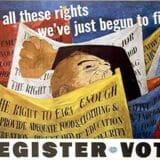
The California Secretary of State‘s website carries a complete list of candidates and descriptions of state ballot measures, including their pro and con arguments. Below is a sampling of six partisan organizations with summaries of their positions: California Labor Federation, Lincoln Club of Orange County, League of Conservation Voters, Tea Party, Courage Campaign’s Progressive Scorecard and the California Rifle and Pistol Association.
We’ve left the groups’ descriptions of ballot measures to give readers a flavor of their perspectives.
(Note: This piece is strictly informational. Frying Pan News is not offering endorsements.)
1. California Labor Federation
Unique Feature: Provides links to county labor federations and their local endorsements.
For President: Barack Obama
Ballot Measures
Proposition 30 Prevents school cuts.
» Read more about: Partisan Ballot Endorsements: A Short Sampling »


(Note: Among this election cycle’s most contentious ballot measures is Proposition 37, which involves the labeling of genetically modified foods purchased by consumers. Arguments pro and con can easily be found on the Internet or on television. Sheila Kuehl has provided, below, a more straightforward explanation of the measure. Frying Pan News neither endorses nor opposes Proposition 37.
Her post is republished here with permission, via LA Progressive.)
Prop. 37 would do three basic things:


Suppose the growth of the U.S. economy slows to a trickle. I don’t mean in the next quarter or next year or even over the next decade. I mean from this time forth.
That’s the prediction of Northwestern University economist Robert Gordon in a new paper that’s become the subject of widespread commentary.
Gordon writes that three industrial revolutions have taken place over the past 250 years: the first centered on the steam engine and railroads; the second based on electric power, the internal combustion engine and indoor plumbing; and the third rooted in computers and the Internet. By substituting mechanical power for human power in the production process and by greatly speeding up transportation and communication, Gordon asserts, the second revolution raised productivity and wealth far more than did the other two.
Indeed, U.S. productivity gains and the concomitant increase in wealth have slowed in recent decades from the levels the United States historically enjoyed.

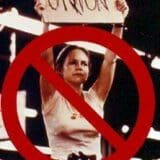
In 1978, California voters passed Proposition 13 – a ballot initiative that rolled back property taxes to 1975 levels and capped future increases at two percent. More destructively, it mandated that all future tax raises in the state be approved by the legislature by a two-thirds margin. The law presaged a wave of anti-taxation measures across the country that continues to define the political landscape we inhabit to this day. Ironically, while Prop. 13 was an effective carrier of the anti-taxation message, the rest of America soundly rejected the draconian policies Prop. 13 put into place to block the raising of tax revenues.
“The specifics of Prop. 13 were largely not adopted in other states,” explains Lenny Goldberg, Executive Director of the California Tax Reform Association. “Hardly any states enacted the two-thirds majority rule. And very few states treat taxes on commercial properties like Prop. 13 does.
» Read more about: After Election Day: Two, Three, Many Prop. 32s »